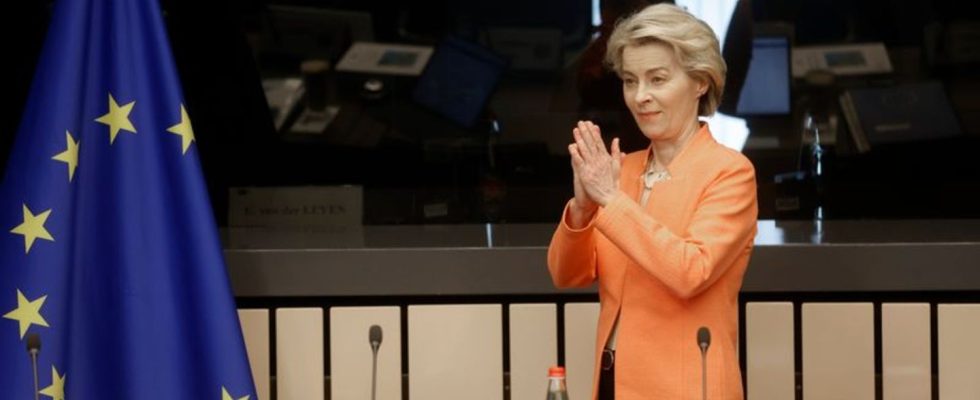European Union
EU Parliament votes for controversial nature conservation law
Ursula von der Leyen, President of the European Commission, upon her arrival at the European Parliament. photo
© Jean-Francois Badias/AP/dpa
A controversial EU nature conservation law has overcome what is probably the decisive hurdle. Christian Democrats were able to push through many changes, but in the end the majority voted against the law.
The law was preceded by a heated dispute, among other things because strict requirements for farmers were feared. The Christian Democrats in particular were against the project and tried to put it on hold completely. After they were able to achieve many of their demands in negotiations, individual Christian Democrats saw the project as positive. The climate politician Peter Liese (CDU) announced that practically all of the concerns of farmers, forest owners, municipalities in rural areas and representatives of renewable energies had been eliminated.
The leader of the Christian Democrats group in the European Parliament, Manfred Weber (CSU), criticized on Tuesday that the law would introduce additional regulations for farmers. The majority of his MPs rejected the law. The German Farmers’ Association sees this as a heavy burden for the relationship between nature conservation and agriculture. The association criticizes the fact that there are far-reaching requirements and blanket goals for the member states.
“This is great news”
Federal Environment Minister Steffi Lemke was pleased. “This is great news,” she said, referring to Parliament’s approval. According to the Green politician, everyone depends on intact and healthy ecosystems. The SPD MEP Delara Burkhard described the law as the greatest achievement in terms of nature conservation in the EU in decades.
Specifically, the new law aims to take measures for at least 20 percent of Europe’s land and sea areas by 2030 in order to bring ecosystems closer to their natural states. In addition, Member States must convert at least 25,000 kilometers of rivers into free-flowing rivers. This means that rivers that are currently straightened or interrupted by structures must be restored to their original state.
However, in emergency situations, the renaturation of agricultural ecosystems can be suspended. This would be the case if, for example, food security were at risk because there was not enough cultivated land available.

